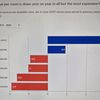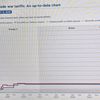11.3.2011 | 01:51
Evrukrýsan kominn af stađ, eina ferđina enn! Lánshćfismat Spánar lćkkađ. Spenna eykst fyrir fund ráđherra Evrusvćđisríkja í dag föstudag!
Ţađ er alltaf góđ spurning hver hefur rétt fyrir sér. En Moody's lćkkađi í gćr mat sitt á lánshćfi Spánar, og byggir mat sitt einkum á eigin mati á líklegum kostnađi viđ endurfjármögnun spanskra banka, sem er 2 - falt hćrra en mat spanskra stjórnvalda. Spćnsk stjórnvöld, svöruđu í gćr fullum hálsi - draga í efa ađ mat Moody's sé nćgilega vandađ, telja ađ sjálfsögđu ađ mat Seđlabanka Spánar sé mun betra.
Ađ sjálfsögđu er ég ekki međ nokkrar forsendur, til ađ slá eigiđ mat á hvor skođunin sé líklega réttari.
Bendi ţó á eitt, ađ fyrir utan Írland var spćnska húsnćđisbólan sú hlutfallslega stćrsta innan ESB, og miđađ viđ útkomuna á Írlandi, ţá myndi ég ćtla ađ húsnćđisverđ á Spáni eigi eftir ađ falla umtalsvert meir en ţađ fram ađ ţessu hefur gert - sem geti framkallađ vandrćđi fyrir bankastofnanir eins og á Írlandi.
Mér finnst merkilegt, ađ ef ţ.e. virkilega svo, ađ spćnskir bankar sleppi ađ mestu viđ alvarleg vandrćđi, miđađ viđ hve rosastór bólan var - sem ćtti ađ ţíđa rosastór útlánatöp og ţví álíka stór bankavandrćđi.
En, skv. spćnskum Stórnvöldum er eftirfarandi sannleikurinn:
Spanish bank capital costs – official version
A dozen banks. Including eight cajas. And €15.15bn.
Commercial banks
Bankinter — €333m
Barclays Bank — €552m
Deutsche Bank — €182m
Bankpyme — €8m
Savings banks
Bankia — €5.775bn
Base — €1.447bn
Civica — €847m
Mare Nostrum — €637m
Catalunyacaixa — €1.718bn
Novacaixagalicia — €2.622bn
Caja Espana de Inversiones — €463m
Unnim — €568m
Ţađ kemur ekki á óvart, ađ svokallađir "Cajas" eru í vandrćđum, en á Spáni hafa sparisjóđir sem á Spáni heita allir Caja eitthvađ veriđ einkum ţeir, sem hafa lánađ til húsnćđiskaupa. Svo, ţađ fylgir eđlilega ađ ţađ eru ţeir, sem súpa seyđiđ af spönsku húsnćđisbólunni.
- Eins og fram kemur í yfirlýsingu Moody's telja ţeir ađ kostnađur verđi 40-50 ma.€
- Ađ auki, telja ţeir möguleika á ađ sá kostnađur geti hlaupiđ á allt ađ 110-120 ma.€ ef Spánn lendir í sambćrilegum húsnćđis-lána vandrćđum, og átti sér stađ á Írlandi.
- Ţeir meta horfur neikvćđar - ţannig ađ meiri líkur en minni séu á frekari lćkkun mats síđar.
- Ţeir taka ţó fram, ađ stjv. Spánar séu ekki neins stađar nćrri bjargbrún fjárhagslegs hengiflug gjaldţrots.
- Ennig, líta ţeir svo á, ađ spćnsk stjv. hafi gert margt gott undanfariđ ár, í ţví ađ laga stöđuna heima fyrir, koma hagkerfinu af stađ, draga úr halla á ríkisútjgöldum og halla á viđskiptum landsins viđ útlönd, o.s.frv.
- Skuldatryggingaálag Spánar hefur einnig lćkkađ síđustu mánuđina, í takt viđ lćkkandi mat markađarins, á gjaldţrotshćttu spánskra stjv.
Yfirlýsing Moodies - í heilu lagi:----------------------------------
London, 10 March 2011 — Moody’s Investors Service has today downgraded Spain’s government bond ratings by one notch to Aa2 from Aa1. The outlook on the Aa2 ratings is negative. Today’s rating action concludes the review for possible downgrade, which Moody’s initiated on 15 December 2010. The main triggers for the downgrade are: (1) Moody’s expectation that the eventual cost of bank restructuring will exceed the government’s current assumptions, leading to a further increase in the public debt ratio. (2) Moody’s continued concerns over the ability of the Spanish government to achieve the required sustainable and structural improvement in general government finances, given the limits of central government control over the regional governments’ finances as well as the background of only moderate economic growth in the short to medium term.
The decision to assign a negative outlook to the rating reflects Moody’s view that the risks to Spain’s government finances remain skewed to the downside. Spain’s vulnerability to market disruption remains elevated given the high funding requirements, not only for the sovereign but also for the regional governments and the banks.
Moody’s has today also downgraded the rating of Spain’s Fondo de Reestructuracion Ordenada Bancaria (FROB) to Aa2 from Aa1 with a negative outlook as the FROB’s debt is fully and unconditionally guaranteed by the government of Spain.
Spain’s country ceilings for bonds and bank deposits are unaffected by today’s rating action and remain at Aaa (in line with the Eurozone’s rating). Spain’s P-1 short-term rating is unaffected by today’s rating action. RATINGS RATIONALE The considerations that drove Moody’s to place the ratings of the Kingdom of Spain under review on 15 December 2010 continue to be the rating agency’s main concerns and have triggered today’s rating action. Firstly, Moody’s continues to have concerns over the ultimate cost of recapitalizing the saving banks (“cajas”).
Although Moody’s acknowledges that the government’s recently announced acceleration of efforts to restructure the cajas is likely to strengthen the country’s banking landscape, the rating agency believes there is a meaningful risk that the eventual cost of the recapitalization effort could considerably exceed the government’s current projections — and Moody’s own earlier estimates from December 2010 (which were calculated using a minimum tier-1 capital ratio of 8% for all entities). Specifically, the government estimates the cost to be a maximum of €20 billion (less than 2% of GDP), which is based on the capital requirements as percentage of risk-weighted assets as of 31st December 2010.
However, Moody’s believes the overall cost is likely to be nearer to €40-50 billion, reflecting more than twice Moody’s earlier estimates of recapitalization needs of €17 billion because (1) the definition of eligible capital instruments has been tightened, and (2) capital requirements have been raised to a core capital ratio of 10% for those institutions with a limited private investor base and high dependence on wholesale funding. Indeed, Moody’s believes that, in a more stressed scenario, recapitalization needs could increase to approximately €110-120 billion. Secondly, the recently published budget execution data for 2010 revealed that the path to fiscal consolidation remains unclear for some of Spain’s regional governments.
Last year, 9 out of 17 autonomous communities breached the budget deficit target of 2.4% of GDP, some by a wide margin. This casts doubts over the ability of the central government to exercise sufficient control over the regions to ensure compliance with deficit targets. This year’s budget deficit target of 1.3% is significantly more ambitious than that of last year, and the effort required to implement it would be quite unprecedented for many regions. Moody’s expects that the regions will manage to reduce their deficits this year, but observes that most of the improvement will likely come from cuts to capital spending plus reduced personnel expenses due to the freeze in public-sector wages -neither of which are sustainable policies.
Moreover, there are no new policy initiatives to reduce the regions’ structural spending pressures in the areas of healthcare and education, beyond last year’s reduction in pharmaceutical costs and the replacement of only 10% of retiring public-sector workers. In addition to the regional government finances, the social security — which has traditionally recorded a surplus in Spain — also recorded a deficit for the first time since 1998, mainly driven by high outlays for unemployment benefits. This is unlikely to change this year given the outlook for the labour market. Under Moody’s base case assumptions, GDP growth will accelerate only moderately this year (to 0.8% from -0.1% in 2010) and the unemployment rate is expected to remain close to current levels.
Moody’s recognizes the government’s resolve in addressing the country’s key weaknesses, which is a key reason for limiting the downgrade to one notch. The government is accelerating the process of bank recapitalization and has just agreed a pension reform with the trade unions and employers’ association. An important reform to the system of collective bargaining is on the agenda for the end of March at the latest. This should be an important step towards gradually making the labour market more flexible. Moody’s also acknowledges that the government achieved the target set for the general government budget deficit in 2010 (9.24% of GDP versus target of 9.3%) and reduced its own central government deficit by a full percentage point of GDP more than the target (5.66% of GDP versus target of 6.7% in cash terms).
At around 60% of GDP in 2010, Spain’s public debt ratio is lower than that of several important peers, including Germany, France, the UK, Belgium and Italy. Even including the higher estimates for bank recapitalization, Spain’s debt ratio would remain lower than those of Italy (Aa2, stable) and Belgium (Aa1, stable). Moody’s continues to believe that Spain’s debt sustainability is not under threat, and its baseline assumptions do not anticipate a need for the Spanish government to ask for EFSF liquidity support. However, Spain’s substantial funding requirements — not only those of the sovereign, but also those of the regional governments and the banks — make the country susceptible to further episodes of funding stress.
Yfirlýsing Moodies - í heilu lagi:----------------------------------
Ég hvet alla til ađ fylgjast mjög vel međ fréttum, af ţví hvađ gerist á fundi ráđherra Evrusvćđis, sem hefst í dag!
Á myndinni sést, ađ í gćr fimmtudaginn 10. mars fór ávöxtunarkrafa fyrir 10. ára Portúgölsk skuldabréf, í 7,68%. Ţar sést einnig, ađ ávöxtunarkrafa fyrir spönsk 10. ára ríkisbréf fór í 5,52%. Ítölsk 10. ára bréf fóru í 4,99%.
Markađurinn er klárlega orđinn óţolinmóđur, ađ heyra frá ađildarlöndum Evrusvćđis, akkúrat hvernig ţau ćtla sér ađ leysa úr krísunni á Evrusvćđinu.
Ţangađ til ađ sú lausn kemur, mun sú krýsa áfram halda ađ hanga yfir hausnum á Evrópu.
En, vonandi verđur sú lausn sem fram kemur ef tímaáćtlun landanna stenst, ađ ljúka gerđ hennar fyrir nćstu mánađamót, ţess eđlis ađ markađir kaupi hana sem frambćrilega. En, ef ekki - ţá getur apríl reynst vera meir spennandi en nokkur mađur ćtti ađ óska ţess ađ hann verđi.
En í apríl er töluvert af stórum gjalddögum fyrir ađildarríki Evru, sem skýrir af hverju ákveđiđ var af leiđtogum Evrusvćđi í janúar sl. ađ hafa lausn tilbúna fyrir mánađamót mars / apríl.
Kv.
Flokkur: Stjórnmál og samfélag | Breytt s.d. kl. 01:56 | Facebook
Um bloggiđ
Einar Björn Bjarnason
Nýjustu fćrslur
- Er samningur Trumps viđ Japan - er inniber 550 milljarđa$ fjá...
- Hótel-bókanir í sumar, gefa vísbendingar um kjaraskerđingu al...
- Kjarnorkuáćtlun Írana hefur líklega beđiđ stórtjón, fremur en...
- Netanyahu, virđist hafa hafiđ stríđ viđ Íran - beinlínis til ...
- Trump ákveđur ađ senda, Landgönguliđa - til Los-Angeles! Kemu...
- Möguleiki ađ Úkraína hafi í djarfri árás á flugvelli sumir mö...
- Yfirlýsing Trumps um yfirvofandi 50% tolla á ESB lönd, afhjúp...
- Tollar Bandaríkjanna á Kína - líklega ca: 50%. Kína á Bandarí...
- Ađ ţađ verđur af hráefnasamningi Úkraínu og Bandaríkjanna - v...
- Margt bendi til yfirvofandi kreppu í Bandaríkjunum! Skv. áhug...
- Vaxandi líkur á ađ Trump, reki: Jerome Powell. Yfirmann Seđla...
- Gideon Rachman hjá Financial Times -- útskýrir af hverju, Ban...
- Trump undanskilur frá tollum á Kína -- snjallsíma, og nánast ...
- Taliđ af sérfrćđingum, verđfall á ríkisskuldabréfum Bandaríkj...
- Viđskiptastríđsyfirlýsing Donalds Trumps gagnvart heiminum li...
Nýjustu athugasemdir
- Er samningur Trumps við Japan - er inniber 550 mil...: Ţetta minnir á ćsinginn vegna ţotunar sem Katarar ćtla ađ gefa ... 7.9.2025
- Er samningur Trumps við Japan - er inniber 550 mil...: Ađ vera ALGER andstćđingur Trumps er eitt en ađ komameđ svona a... 7.9.2025
- Er samningur Trumps við Japan - er inniber 550 mil...: Ţannig ađ ţú heldur ađ Trump sé mútuţegi eđa ţjófur á ţessu fé?... 6.9.2025
Eldri fćrslur
2025
2024
2023
2022
2021
2020
2019
2018
2017
2016
2015
2014
2013
2012
2011
2010
2009
2008
Bloggvinir
-
 eyglohardar
eyglohardar
-
 bjornbjarnason
bjornbjarnason
-
 ekg
ekg
-
 bjarnihardar
bjarnihardar
-
 helgasigrun
helgasigrun
-
 hlini
hlini
-
 neytendatalsmadur
neytendatalsmadur
-
 bogason
bogason
-
 hallasigny
hallasigny
-
 ludvikjuliusson
ludvikjuliusson
-
 gvald
gvald
-
 thorsteinnhelgi
thorsteinnhelgi
-
 thorgud
thorgud
-
 smalinn
smalinn
-
 addabogga
addabogga
-
 agnarbragi
agnarbragi
-
 annabjorghjartardottir
annabjorghjartardottir
-
 annamargretb
annamargretb
-
 arnarholm
arnarholm
-
 arnorbld
arnorbld
-
 axelthor
axelthor
-
 arnith2
arnith2
-
 thjodarsalin
thjodarsalin
-
 formosus
formosus
-
 birgitta
birgitta
-
 bjarnijonsson
bjarnijonsson
-
 bjarnimax
bjarnimax
-
 westurfari
westurfari
-
 virtualdori
virtualdori
-
 bookiceland
bookiceland
-
 gattin
gattin
-
 davpal
davpal
-
 dingli
dingli
-
 doggpals
doggpals
-
 egill
egill
-
 jari
jari
-
 einarborgari
einarborgari
-
 einarsmaeli
einarsmaeli
-
 erlaei
erlaei
-
 ea
ea
-
 fannarh
fannarh
-
 fhg
fhg
-
 lillo
lillo
-
 gesturgudjonsson
gesturgudjonsson
-
 gillimann
gillimann
-
 bofs
bofs
-
 mummij
mummij
-
 gp
gp
-
 gudmbjo
gudmbjo
-
 hreinn23
hreinn23
-
 gudrunmagnea
gudrunmagnea
-
 gmaria
gmaria
-
 topplistinn
topplistinn
-
 skulablogg
skulablogg
-
 gustafskulason
gustafskulason
-
 hallurmagg
hallurmagg
-
 haddi9001
haddi9001
-
 harhar33
harhar33
-
 hl
hl
-
 diva73
diva73
-
 himmalingur
himmalingur
-
 hjaltisig
hjaltisig
-
 keli
keli
-
 fun
fun
-
 johanneliasson
johanneliasson
-
 jonsullenberger
jonsullenberger
-
 rabelai
rabelai
-
 jonl
jonl
-
 jonmagnusson
jonmagnusson
-
 jonvalurjensson
jonvalurjensson
-
 thjodarskutan
thjodarskutan
-
 gudspekifelagid
gudspekifelagid
-
 juliusbearsson
juliusbearsson
-
 ksh
ksh
-
 kristbjorg
kristbjorg
-
 kristinnp
kristinnp
-
 larahanna
larahanna
-
 leifurbjorn
leifurbjorn
-
 lifsrettur
lifsrettur
-
 wonderwoman
wonderwoman
-
 maggij
maggij
-
 elvira
elvira
-
 olafureliasson
olafureliasson
-
 olinathorv
olinathorv
-
 omarragnarsson
omarragnarsson
-
 ottarfelix
ottarfelix
-
 rafng
rafng
-
 raksig
raksig
-
 redlion
redlion
-
 salvor
salvor
-
 samstada-thjodar
samstada-thjodar
-
 fullvalda
fullvalda
-
 fullveldi
fullveldi
-
 logos
logos
-
 duddi9
duddi9
-
 sigingi
sigingi
-
 sjonsson
sjonsson
-
 sigurjons
sigurjons
-
 stjornlagathing
stjornlagathing
-
 athena
athena
-
 stefanbogi
stefanbogi
-
 lehamzdr
lehamzdr
-
 summi
summi
-
 tibsen
tibsen
-
 vala
vala
-
 valdimarjohannesson
valdimarjohannesson
-
 valgeirskagfjord
valgeirskagfjord
-
 vest1
vest1
-
 vignir-ari
vignir-ari
-
 vilhjalmurarnason
vilhjalmurarnason
-
 villidenni
villidenni
-
 thjodarheidur
thjodarheidur
-
 valli57
valli57
-
 tbs
tbs
-
 thorgunnl
thorgunnl
-
 thorsaari
thorsaari
-
 iceberg
iceberg
Heimsóknir
Flettingar
- Í dag (18.9.): 0
- Sl. sólarhring: 6
- Sl. viku: 34
- Frá upphafi: 0
Annađ
- Innlit í dag: 0
- Innlit sl. viku: 24
- Gestir í dag: 0
- IP-tölur í dag: 0
Uppfćrt á 3 mín. fresti.
Skýringar





Athugasemdir
Ég tel vegna ađ reynslu ađ lánshćfi mat sé nátengt reiđufjár innstreymi ţess sem er metin á skammtíma forsendum.
Júlíus Björnsson, 11.3.2011 kl. 02:17
Draumurinn um ađ hćkka raunvexti yfir 2,0% á langtíma húsnćđislánum, hefur aldrei gengiđ upp í sögunni almennt. Ný kynslóđ virđist alltaf ţurfa ađ falla í freistni.
Mikiđ af húsnćđi í sölu á Spáni er svo kallađir second residence. Millstéttinn á móti hefur veriđ ađ lćkka í rauntekjum um alla EU. 1. residence fer síđast á uppbođ.
Júlíus Björnsson, 11.3.2011 kl. 02:24
Bćta viđ athugasemd [Innskráning]
Ţú ert innskráđ(ur) sem .
Innskráning